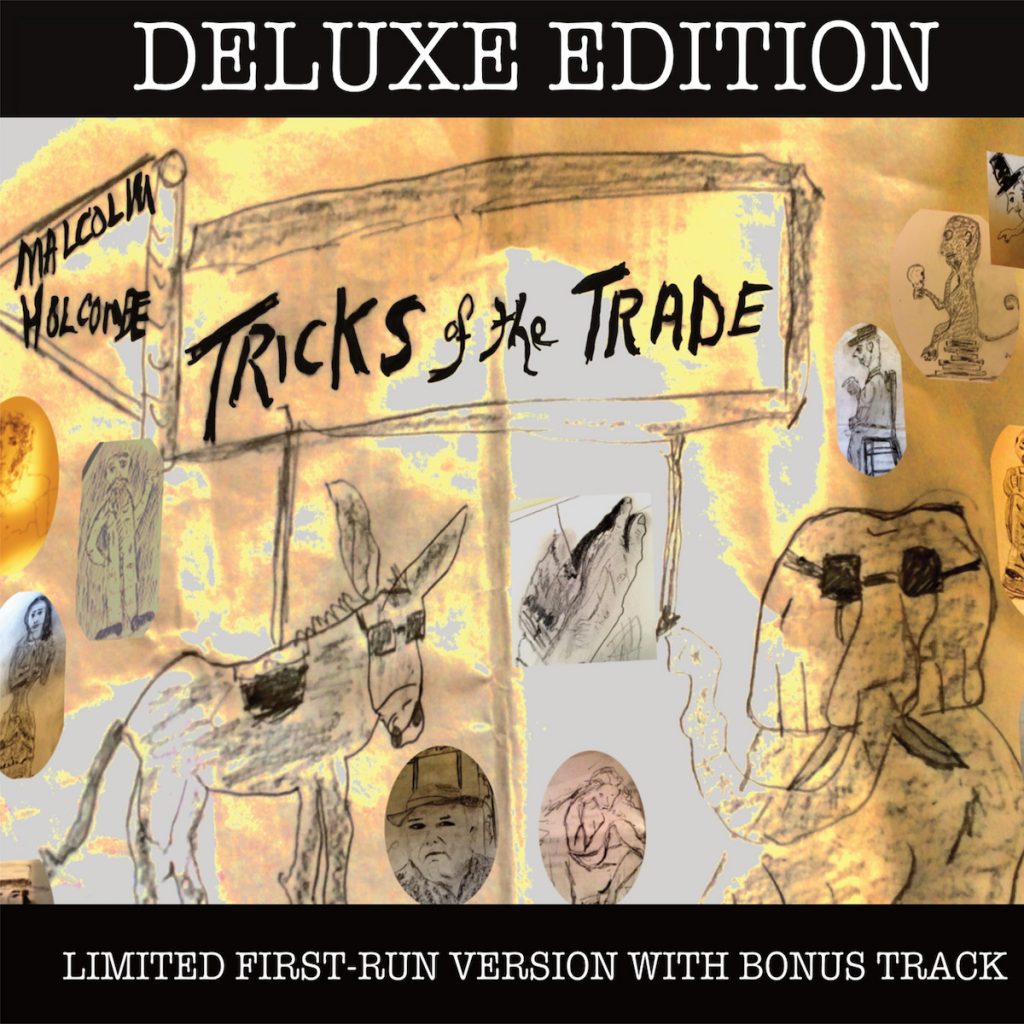Malcolm Holcombe in Full Command of ‘Tricks of the Trade’

The funny thing about singer-songwriter Malcolm Holcombe calling an album Tricks of the Trade is that there’s an implication that songwriting, Holcombe’s trade, lends itself to subterfuge, that one can fool a good song into existence the same way a sketchy butcher might use their thumb on the scale to squeeze a few extra dollars out of customers. But on Tricks of the Trade, there’s no musical sleight of hand. These are incredible, impactful songs that feel organic, like they grew on a tree and fell to the ground, ready to be enjoyed. There are no tricks here.
Part of the natural feeling is due to the grit in Holcombe’s voice. The tunes are beautiful but his vocals aren’t. At least not in the traditional sense. But there’s a sincerity and commitment to his singing that is stunningly lovely because you’re hearing an artist bring his songs to life — often with spartan instrumentation that lets the songs breathe and find their own legs.
The title track, perhaps an allegory for the music industry told through a circus-based tale, has a hopelessness that’s also comforting in its acceptance, closing with “The grand finale’s all the same / Every night it always rains / The big top cheats your eyes / But you’re always back again.” The tune starts with Holcombe and guitar, sounding like a more whimsical Townes Van Zandt. Dobro and light drums eventually flesh things out, but the song doesn’t need much beyond its melody.
“Crazy Man Blues” begins with a fast acoustic riff, Holcombe chanting over it, almost throat singing, while guitar works in the background, fitting into the song, but also feeling like when you call someone with their TV blasting in the background. The effect works well with the song, which is a condemnation of politicians.
But even Holcombe’s more produced moments are special. “Shaky Ground” is a straightforward country song, with familiar instrumentation and a soaring chorus. “Windows of Amsterdam” has a big rock refrain, complete with guitar that, while not distorted, is muddy. Even with the tonal variety, Holcombe never loses the heart of the song.
It’s unfair to say an album sounds natural because as listeners, with rare exceptions, we’re not a part of the creation process. Just because something sounds effortless doesn’t mean a songwriter didn’t agonize over every verse and bridge. Having said that, Tricks of the Trade feels full of songs that connect with a weight like they’ve always existed. It’s impressive given how Holcombe takes on modern subjects like immigration and the Flint water crisis. He has a knack for tapping into the universal, timeless angst of so many of our contemporary problems. His trick, if you accept the premise of the album title, is showing that while these issues are, unfortunately, long-time challenges, they make for powerful, wonderful songs.




